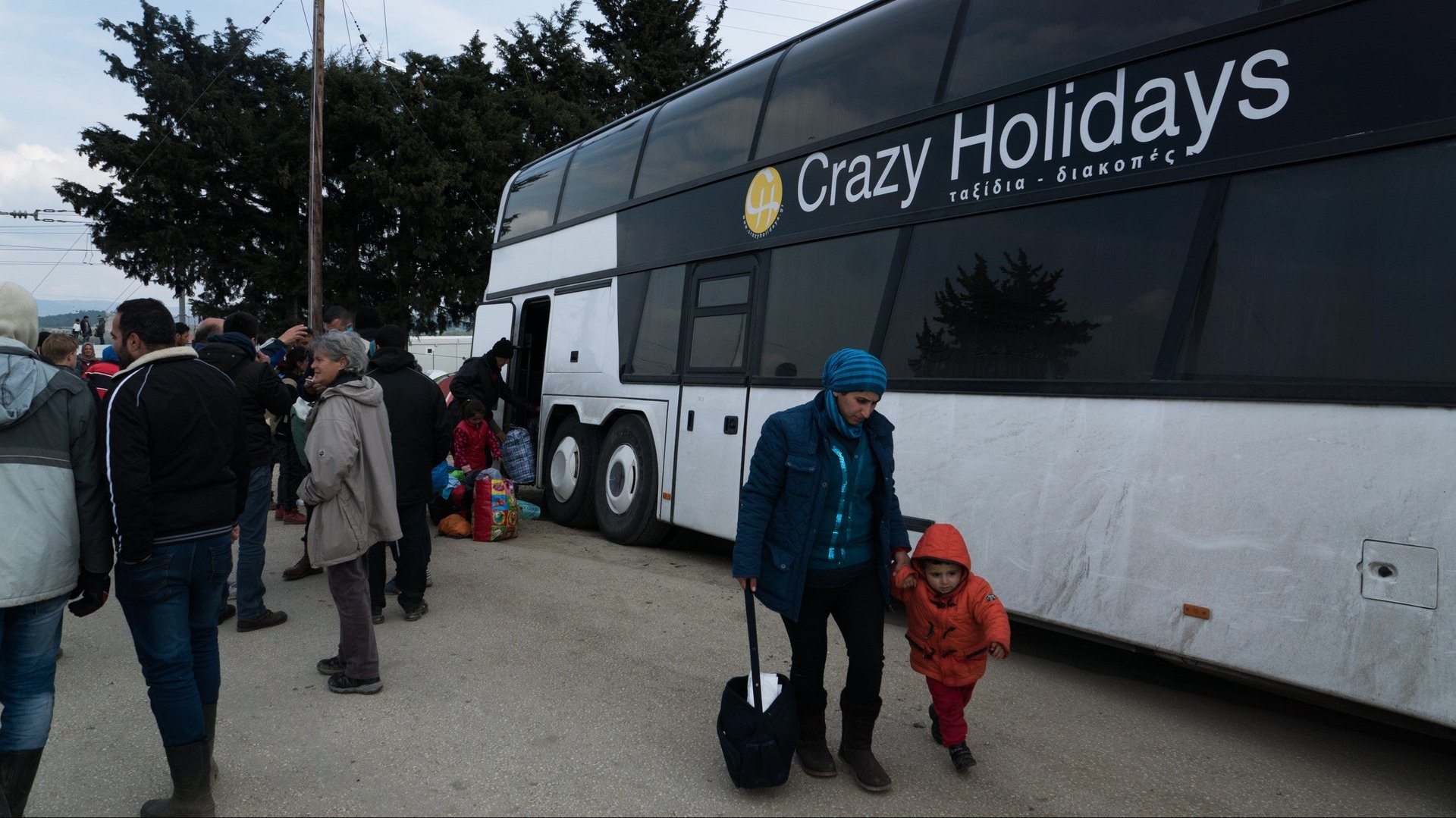Why Syrian refugees are avoiding refugee camps
Idomeni, Greece


Idomeni, Greece
On the border between Greece and Macedonia, a ”Crazy Holidays”-branded bus idles, its luggage compartment open. A paper stuck in the window of one reads in English: “BUS TO ATHENS.”
Its passengers are anything but beach-bound holiday makers. These buses are part of an evolving effort to coax refugees out of the Greek village Idomeni. Nearly 12,000 people linger here in the hopes that the border will one day open, and they will be able to move on toward Western Europe.
In Idomeni, tents sprawl across rocks and dirt. Derelict trains and abandoned buildings have turned into coveted residences. Some refugees have clocked a month or more waiting here, and many are running out of money. Unlike official Greek refugee camps, which are run by the army, Idomeni has effectively been run by NGOs and volunteers. Official camps in Greece are said to offer better living conditions than Idomeni, but not everyone is tempted.
“I would prefer to stay here until the last minute, until the border opens,” says Aseel, 19-year-old asylum-seeker from Syria. She, like the other asylum-seekers in Idomeni, spoke to Quartz on condition that they be identified by first name only.
“Rain. Snow. Mud. We will live here,” echoes Abdul, a 65-year-old from Syria.
On Mar. 28, the parliament of Macedonia (FYROM) passed a measure declaring a state of emergency along its borders until the end of 2016, which means that border crossings will remain closed at least until the end of the year. Nevertheless, the people waiting here remain, citing hopes that the border could soon open and fears of being forgotten.
Mohamed, a 38-year-old Syrian, rejects the idea of moving to an official camp. “Nobody knows about you [there],” he tells Quartz. “Like you’re in a cave.”
In Idomeni, asylum-seekers may sleep rough but they are visible. News vans, some adorned with satellite dishes, dot the road leading into the camp. Photographers trudge along, two or three cameras hanging off their shoulders. Reporters jot down notes as they listen to the myriad stories that paint a picture of lives eviscerated by war.
For the past few months, this town has been a flashpoint for the refugee crisis in Greece. The islands of Lesbos, Chios, Kos and others are being cleared of asylum-seekers under the terms of a recent deal between the European Union and Turkey; starting this week, refugees who arrived in Greece after March 20 can be deported to Turkey. But that deal does not affect the people who’ve already made it as far as Idomeni—they’re just stuck.
“After 40 years, I will be old and on a stick, and I will ask, ‘Have the borders opened?’” jokes Yazan, a 24-year-old from Syria. He laughs bitterly. “There is nothing left here. It’s up to the governments.”